How to Make Someone a Legal Guardian: Legal Requirements
Understanding Legal Guardianship
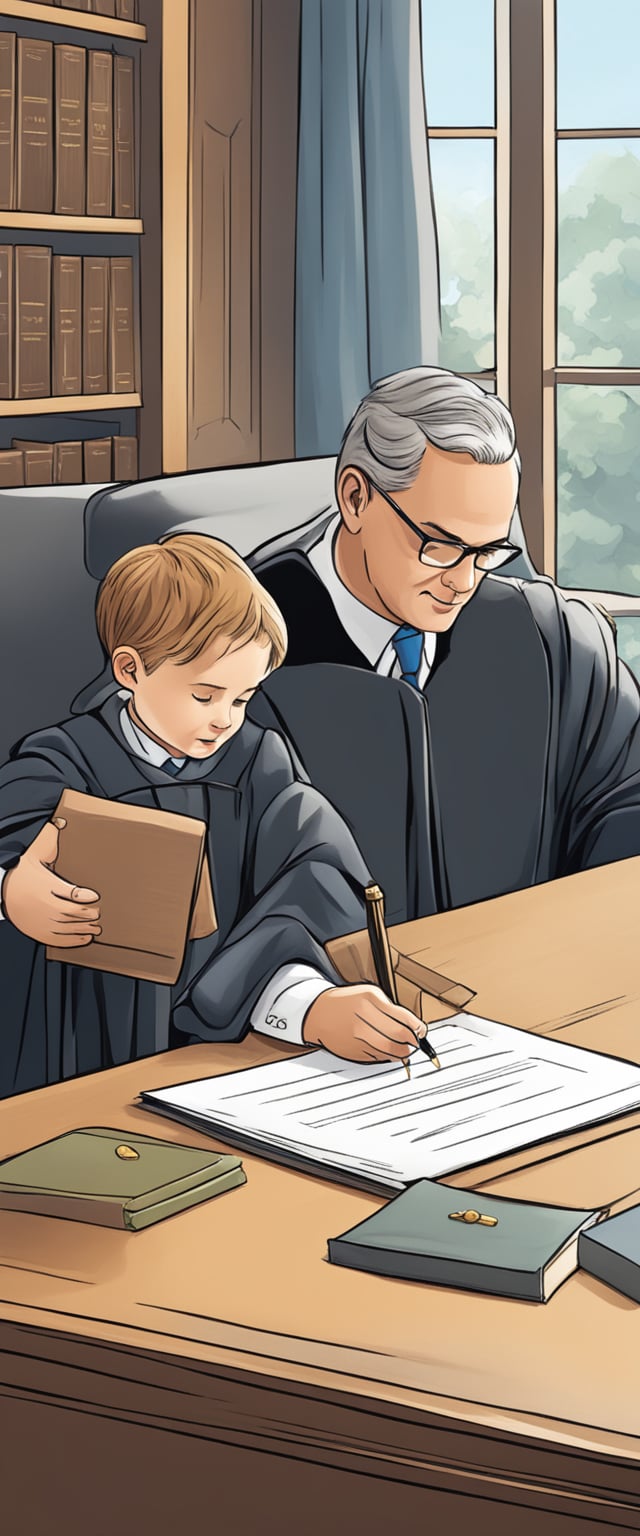
Legal guardianship grants a person the authority to care for another individual who cannot manage their own affairs. This role involves specific rights and responsibilities that differ based on the type of guardianship established. The distinctions between guardianship and conservatorship can affect the scope of legal control.
What Is a Legal Guardian? Legal custody
A legal guardian is an individual or entity appointed by a court to make decisions for a minor or an incapacitated adult. This person assumes legal responsibility for the ward’s personal, medical, and sometimes educational needs. The guardian must act in the best interest of the ward and manage day-to-day care.
Guardians have authority that replaces or supplements the ward’s rights. The role continues until the ward reaches adulthood, regains capacity, or the court ends the guardianship. Establishing legal guardianship requires a formal court process with evidence of incapacity or need.
Guardianship Versus Conservatorship
Guardianship primarily involves decisions about personal care, including housing, healthcare, and education. Conservatorship, on the other hand, focuses on financial matters such as managing assets and paying bills. Some states use the terms differently, but generally, guardians handle personal needs and conservators handle financial affairs.
In some cases, one person may serve as both guardian and conservator. Courts carefully review the ward’s needs before assigning these roles to ensure proper protection.
Types of Guardianship
There are several types of guardianship, including:
- Guardianship of a Minor: Appointed when parents are unable or unavailable to care for their child.
- Guardianship of an Adult: Assigned when an adult is unable to care for themselves due to incapacity.
- Temporary Guardianship: Granted for a limited time, often during emergencies.
- Plenary Guardianship: Provides full legal authority over all personal decisions.
Each type defines the scope of rights and responsibilities differently. The court tailors the guardianship to the ward’s specific situation to ensure adequate care without unnecessary restrictions.
When Do You Need to Appoint a Legal Guardian?
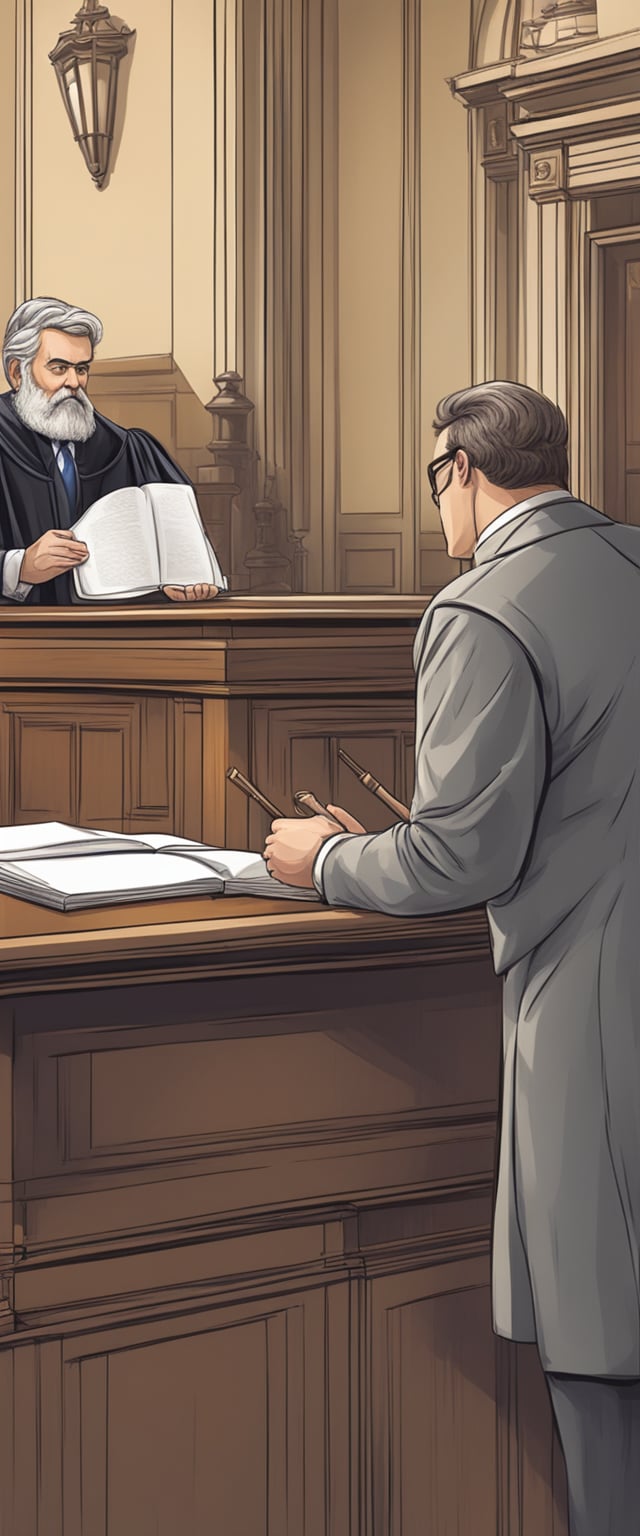
Appointing a legal guardian is necessary when an individual cannot care for themselves or a minor due to incapacity or other circumstances. This process ensures that someone is legally responsible for their well-being and decisions.
Situations That Require Guardianship of a Child
A legal guardian is needed when a person becomes incapacitated due to illness, injury, or mental disability, making them unable to manage personal, financial, or medical decisions. Courts appoint guardians to protect these individuals and ensure their needs are met.
Guardianship may also be required if an elderly person cannot care for themselves or their affairs. The court reviews evidence of incapacity before granting guardianship to prevent unnecessary loss of autonomy.
Parental Incapacitation or Death
If a parent becomes incapacitated or dies, a guardian must be appointed for any children or dependents who cannot care for themselves. This legal role allows the guardian to make essential decisions related to health, education, and welfare.
Without guardianship, there may be legal complications in accessing medical care or benefits for the child. Many parents appoint guardians in advance through a will or legal document to avoid delays.
Guardianship for a Minor Child
When parents are unable or unwilling to care for a child until the child reaches the age of 18, appointing a legal guardian ensures the child’s stability. This process transfers parental rights and responsibilities to the child's guardian.
A guardian for a minor must provide for daily care, education, and medical decisions. The court evaluates the guardian’s fitness before appointment to prioritize the child’s best interests.
Choosing the Right Guardian

Selecting a legal guardian requires careful thought about the child's needs, the guardian's abilities, and potential future situations. The court will appoint the process that involves evaluating several practical factors, considering backup options, and addressing special circumstances like disabilities or medical conditions.
Factors to Consider When Naming a Guardian
The ideal guardian should be someone capable of raising the child with stability and care. This includes emotional support, financial responsibility, and aligning with the parents' values or wishes for education and lifestyle.
Trustworthiness and availability are key. A chosen guardian must have the time, resources, and willingness to take on the role. It helps to discuss the responsibility with the person beforehand to confirm their commitment.
Legal and geographic factors matter when you name a legal guardian. Naming a guardian who takes care for your child, lives nearby can ease transitions and maintain consistency. Additionally, consider the guardian’s age and health to ensure they can serve long term.
Backup Guardians and Alternatives
It is wise to name a backup guardian who can take on the responsibility in the event the primary guardian cannot serve. The backup should meet the same criteria and have the same guardianship papers as the chosen guardian to avoid complications.
Some choose two guardians to look after the children or alternate in distinct roles, such as financial management and caregiving. This approach offers flexibility but requires clear legal documentation.
Alternatives include formal guardianship arrangements through courts or guardianship agreements contingent on specific conditions. These options ensure protection if initial plans fall through.
Guardianship for Children With Special Needs
For children with special needs, the capable guardian must understand the child’s unique requirements. This includes managing medical care, therapies, and educational planning.
Parents may want to name a guardian with relevant experience or who has taken prior training related to special needs. Coordination with healthcare providers and social services is critical.
Legal planning may involve supplemental needs trusts or government benefits preservation. Naming a guardian who can navigate these complexities is essential for continued care.
The Legal Process for Appointing a Guardian
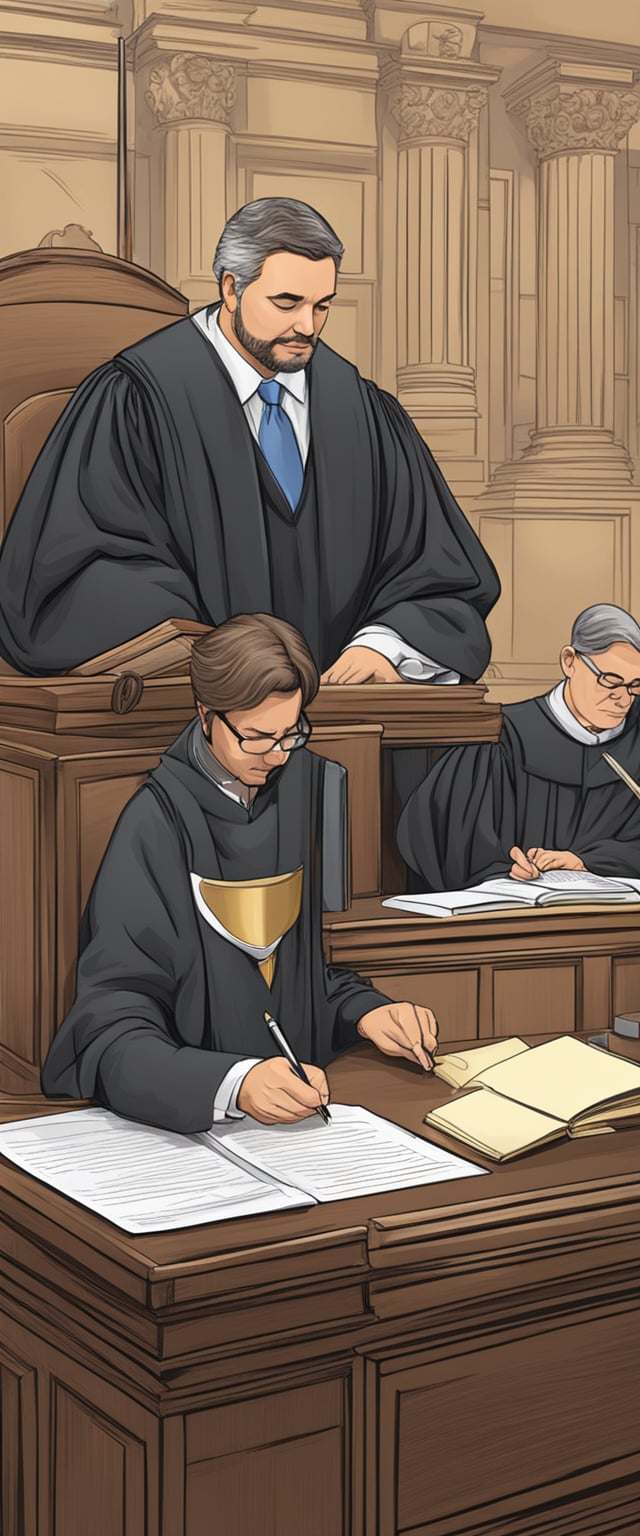
Appointing a guardian involves several key steps that ensure the person selected is legally authorized and suitable. This process requires formal filings, court involvement, and proper documentation, particularly when consent or estate planning is involved.
Filing a Petition for Guardianship
The process begins when someone files a petition with the court to appoint a legal guardian. This petition must file and state the reasons why guardianship is needed and provide details about the person who requires care to take effect.
The petitioner must often provide evidence supporting their request to become parent with sole custody. This may include medical records or statements about the individual’s inability to manage personal or financial matters.
Filing the petition formally asks the court to appoint a guardian for a minor or incapacitated adult. This is a legal requirement before any guardian can assume responsibility.
Court Hearings and Evaluations
After filing, the court schedules a hearing to review the petition. During this hearing, the petitioner explains why the guardianship is necessary.
The court may also order evaluations by social workers or healthcare professionals. These evaluations assess the individual's needs and the petitioner’s suitability as guardian.
The court’s main focus is the individual’s best interests. It can appoint or deny guardianship based on the hearing's findings and evaluations.
Obtaining Written Consent and Notarization
In many cases, the proposed guardian must provide written consent to serve. This consent document demonstrates willingness to accept legal responsibility.
Written consent often must be notarized to verify the identity of the signer and the authenticity of the document. Notarization is a formal step to prevent fraud.
If the individual requiring care is able, they may also need to consent to the guardianship. Without necessary consents, the court may delay or refuse the appointment.
Appointing Guardians through an Estate Plan
Guardianship can also be designated in an estate plan, especially for minor children. A parent or guardian can specify a future guardian in their will or trust.
This designation allows for a smoother transition if the current guardian becomes unable to care for the individual. However, courts typically must still approve the appointed guardian.
Including a guardianship appointment in an estate plan requires clear, legal documentation. This helps ensure the guardian is appointed according to the intentions of the person creating the plan.
Determining Parental Rights and Responsibilities
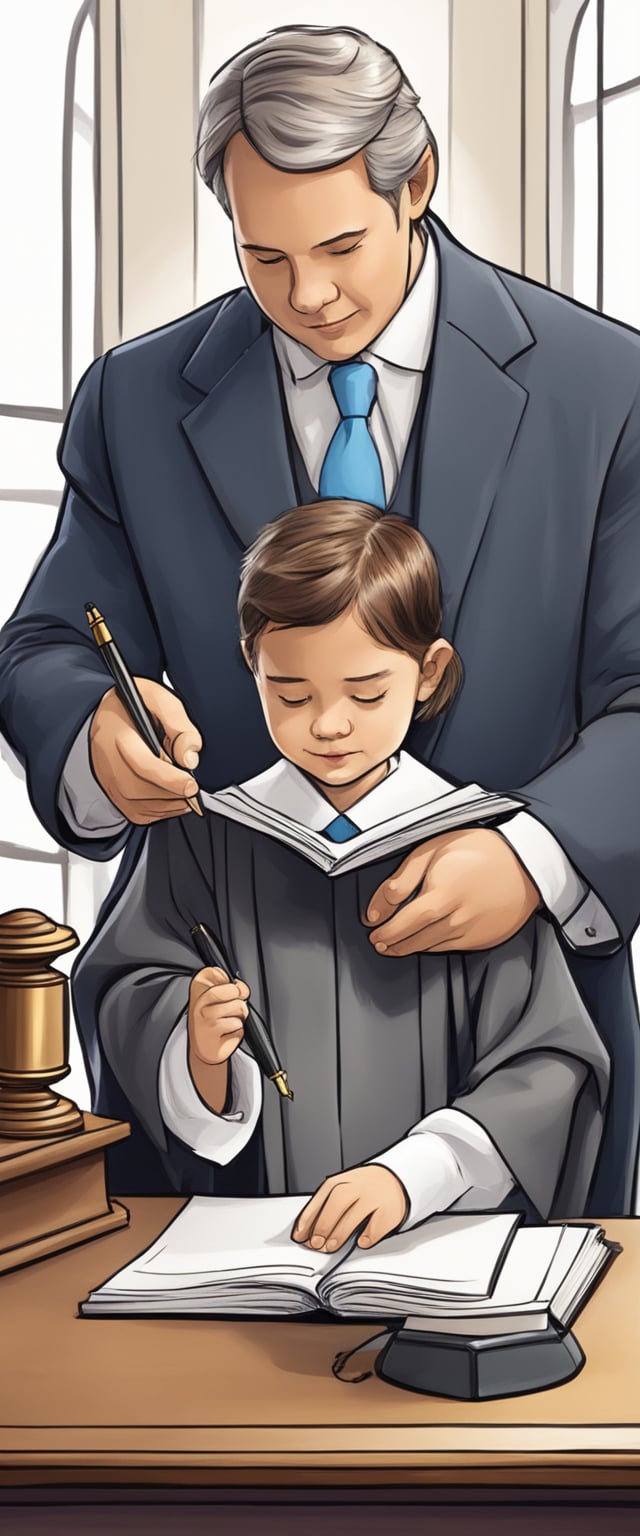
Establishing legal guardianship involves carefully understanding how it affects existing parental rights and the responsibilities attached to custody. The complexities surrounding sole custody, biological parents, and appointed guardians shape the legal framework for guardianship decisions.
Effect on Parental Rights
Legal guardianship can modify or suspend parental rights depending on the case and jurisdiction. When a guardian is appointed, the parent’s decision-making authority over the child may be limited or transferred entirely. However, termination of parental rights is a separate legal process from guardianship and usually requires court intervention.
Parents retain rights unless a court explicitly changes them when appointing a guardian. Guardians typically assume duties like education, health care, and daily care, which may restrict a parent’s involvement. The scope of rights affected depends on whether guardianship is temporary or permanent.
Guardianship When a Parent Has Sole Custody
If one parent has sole custody, appointing a guardian often requires proving that the parent is unable or unwilling to fulfill custodial duties. Guardianship in this context can serve as a legal mechanism to protect the child’s best interests without terminating the sole custodian’s rights.
The court evaluates the extent of the parent’s capacity to care for the child before granting guardianship. Guardians may act as caretakers, but sole custody remains with the parent unless the court orders otherwise. This ensures the parent’s legal rights are preserved while addressing the child's immediate needs.
Biological Parent Versus Appointed Guardian
Biological parents generally hold natural rights over their children unless legally modified. An appointed guardian steps into a caretaking role that can overlap or supersede parental rights, based on the guardian's authority defined in the court order.
Biological parents may retain visitation or decision-making rights depending on the guardianship terms. Guardianship does not automatically nullify a biological parent’s rights but provides a legal framework for a third party to act in the child’s best interest when parents cannot.
Guardian’s Duties and Legal Authority

A legal guardian holds specific responsibilities involving the welfare and financial management of the child. These duties focus on protecting the child's best interests through careful decision-making and oversight.
Making Decisions for the Child
The guardian has the legal authority to make daily and major decisions affecting the child’s life. This includes choosing schools, medical care, religious education, and living arrangements. Decisions must prioritize the child’s best interests, ensuring safety, education, and well-being.
The guardian acts in place of the child’s parents but must always consider what benefits the child’s development and happiness. Courts expect guardians to maintain communication with the child’s family when appropriate, balancing stability and support.
Managing the Child’s Finances and Estate
Guardians are responsible for managing the child’s financial assets and any estate left in their care. This includes paying bills, investing funds prudently, and using money strictly for the child's benefit.
They may need to file reports or accountings with the court, depending on local laws. Misuse or mishandling of funds can result in legal consequences, so guardians must act transparently and prudently in financial matters.
Overseeing the Child’s Upbringing and Welfare
Guardians must provide a safe, stable environment that supports the child’s physical and emotional needs. This involves arranging appropriate living conditions, nutrition, education, and medical health care.
They should foster a nurturing atmosphere that promotes the child’s growth and emotional security. Guardians also ensure the child’s social development through extracurricular activities and community involvement, maintaining necessary records and communications regarding their welfare.
Court Involvement in Guardianship
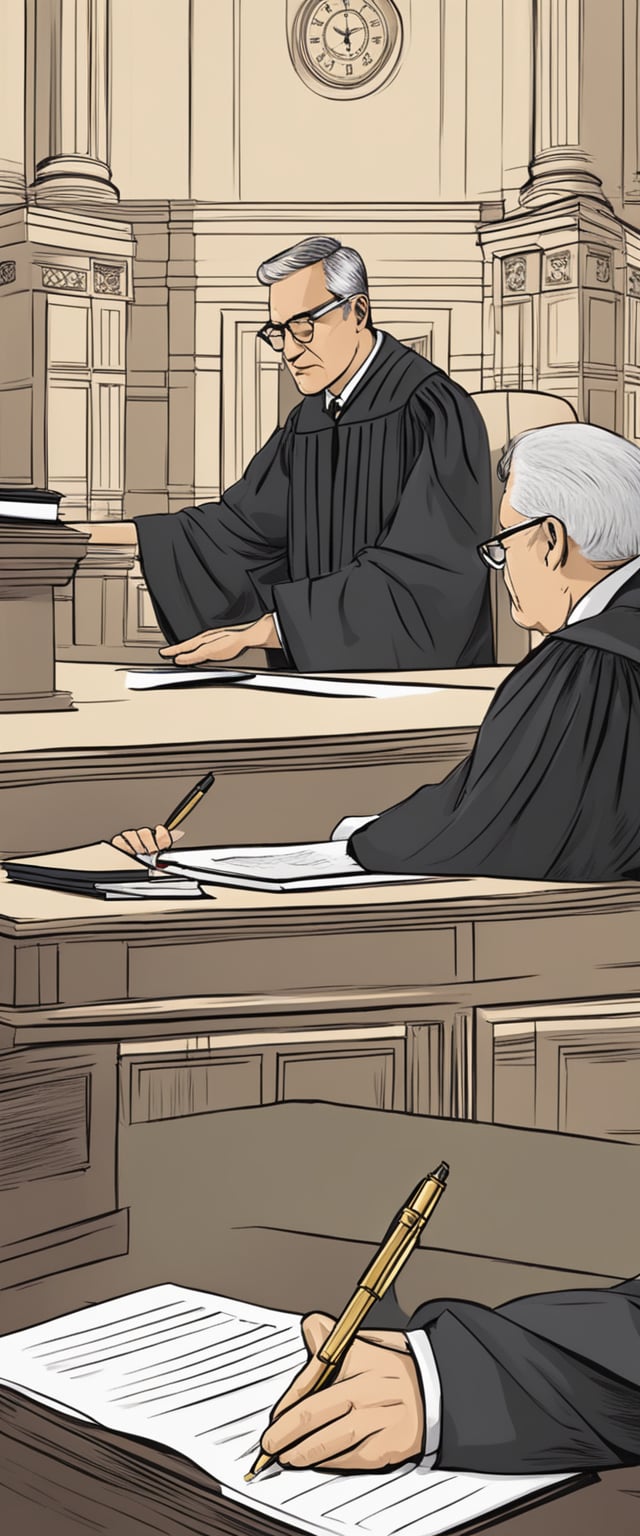
The process of making someone a legal guardian typically requires court oversight to ensure the guardian is suitable and that the ward’s best interests are protected. Courts verify evidence, follow legal standards, and issue official orders to confirm guardianship.
Role of Probate Court
Probate court oversees the guardianship process in most cases. It reviews petitions, evaluates the need for guardianship, and assesses the fitness of the proposed guardian.
The court gathers information from medical professionals, social workers, and family members. The probation court then decides whether to approve, modify, or deny the guardianship request. After approval, it issues a legal guardianship order.
This court continues monitoring the guardianship through periodic reports. Many states require guardians to regularly report on the ward’s wellbeing and financial status to the probate court.
Court-Appointed Guardians
A court-appointed guardian is legally authorized through a formal court process. The court appoint legal who meets specific criteria like age, character, and ability to care for the ward.
The appointment process includes filing a petition, notifying interested parties, and attending a court hearing. The court may appoint someone like a guardian ad litem to represent the ward’s interests if needed.
Once appointed, the guardian gains legal authority to make decisions for the ward under court supervision. Termination or substitution of a guardian also requires go to court and file a permission.
State-Specific Guardianship And Parental Rights Requirements
Guardianship laws vary by state, affecting appointment procedures and responsibilities. Many states require paperwork like birth certificate, background checks, training programs, or specific forms to be filed.
Depending on the state, the court may require different evidence levels, such as medical evaluations or financial disclosures, before granting guardianship. Some states mandate annual reporting or court reviews.
A table outlining common state requirements:
| Requirement | Description | Notes |
|---|---|---|
| Background Check | Criminal and abuse history verification | Required in most states |
| Medical Evaluation | Proof of ward’s incapacity | Varies by jurisdiction |
| Notice to Relatives | Informing family members | Ensures transparency |
| Reporting | Regular updates to court | Frequency differs by state |
Rights and Obligations of the Appointed Guardian

An appointed guardian holds specific legal rights and responsibilities to ensure the well-being and protection of the ward. Guardians must meet age requirements and understand how their role changes when the ward turns 18.
Legal Rights and Limitations (Nominate a Guardian)
The appointed guardian has the legal authority to make decisions on behalf of the ward. This includes managing financial matters, healthcare choices, education, and living arrangements. The guardian is legally responsible for acting in the ward's best interest.
However, these rights have limitations. Guardians cannot ignore court orders or act outside the scope defined by the court. Misuse of authority or neglecting duties can result in removal or legal consequences. The guardian must also provide regular reports to the court, detailing care and management of the ward’s affairs.
Guardians Must Be At Least 18 Years Old
To be legally appointed as a guardian, an individual must be at least 18 years old. This age requirement ensures the guardian has reached legal adulthood and is presumed capable of making responsible decisions.
Guardians younger than 18 are not legally recognized in this role. Courts require proof of the guardian’s maturity and ability to fulfill responsibilities. This rule applies universally in most jurisdictions to protect the ward’s best interests.
Transition Upon Turning 18 And The Guardian For Your Child
When a ward turns 18, the legal guardianship typically ends unless the individual has been deemed incapable of managing their own affairs due to disability or incapacity.
If the ward remains unable to care for themselves, the guardian’s responsibilities may continue under specific legal arrangements, such as conservatorships. Otherwise, the ward gains full legal rights and responsibilities, including signing contracts and making personal decisions independently.
Special Considerations in Guardianship
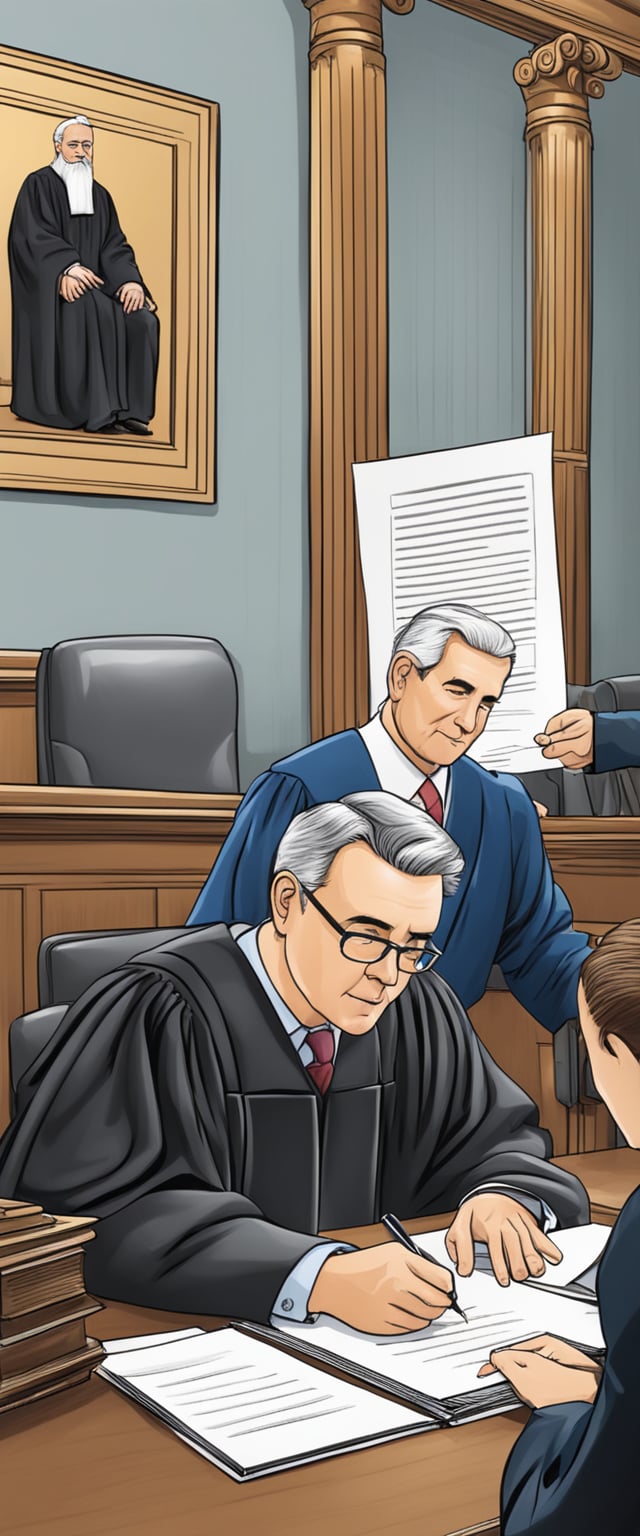
Guardianship involves various factors depending on the child's and family's circumstances. It can include respecting religious practices, accommodating grandparents’ roles, and cooperating with child protective services when necessary.
Religious and Cultural Aspects
A guardian may be responsible for maintaining a child's religious upbringing, which courts often consider important. The guardian’s commitment to the child’s faith can influence the court's decision, especially if it aligns with the child's cultural background.
Courts typically favor guardians who will respect the child’s existing religious practices unless there is a compelling reason not to. Guardianship agreements sometimes include specific provisions about religious education and participation in cultural events.
When choosing a guardian, families should clearly express any religious or cultural expectations in legal documents to prevent disputes later.
Guardianship for Grandparents
Grandparents often seek guardianship when parents cannot care for the child due to health, legal, or other issues. The law may give grandparents standing in court, but they must prove that guardianship serves the child's best interests.
Guardianship by grandparents allows the child to stay in a familiar environment, providing emotional security and stability. Courts evaluate the grandparents' ability to meet the child’s physical and emotional needs.
Documentation of the grandparents’ relationship with the child, such as evidence of caregiving or support, strengthens their guardianship petition. Legal processes and requirements for grandparents vary by state.
Guardianship When Involving Child Protective Services (CPS)
When CPS is involved, guardianship can address immediate safety concerns. CPS may recommend a guardian if the child’s parents are unable or unfit to provide care.
A guardian appointed in these cases must cooperate with CPS requirements, including regular check-ins and reporting. The guardian’s home is usually subject to periodic evaluation to ensure the child’s welfare.
- Understanding Legal Guardianship
- When Do You Need to Appoint a Legal Guardian?
- Choosing the Right Guardian
- The Legal Process for Appointing a Guardian
- Determining Parental Rights and Responsibilities
- Guardian’s Duties and Legal Authority
- Court Involvement in Guardianship
- Rights and Obligations of the Appointed Guardian
- Special Considerations in Guardianship

Leave a Reply